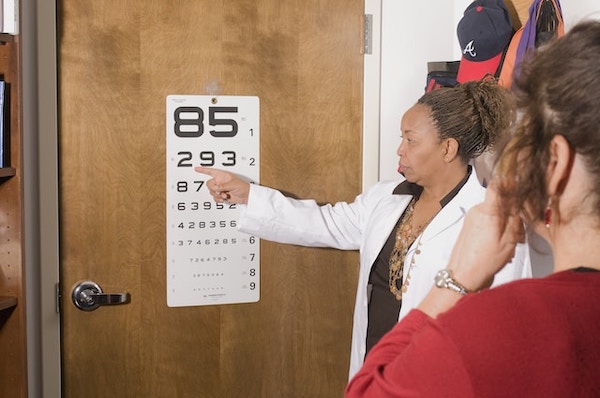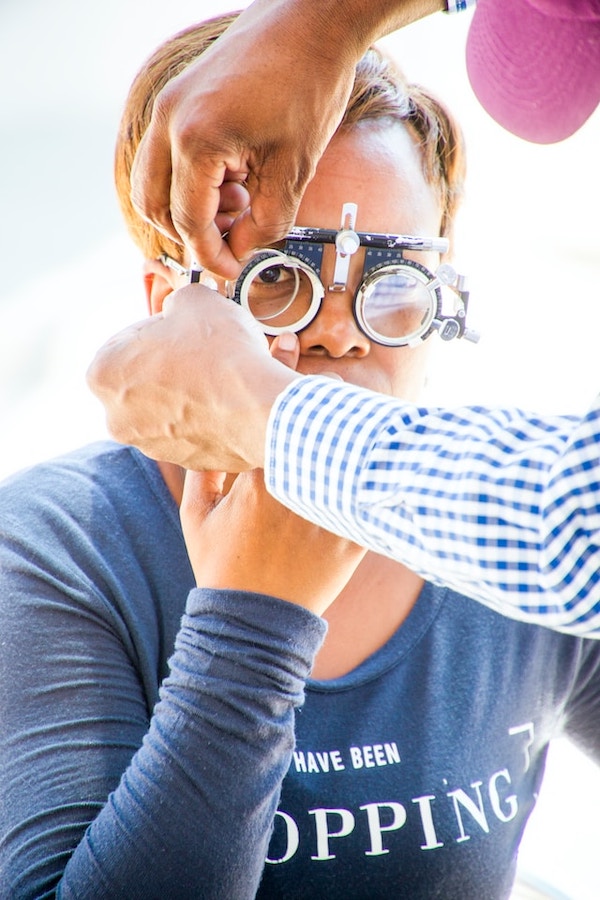DOSSIER Mobility, the future of optics?

The world is changing, and every sector of activity must take it into account. The decade that has started is certainly the most dynamic since the 1980s. On all levels, social, demographic, environmental, changes are taking place. The optical sector is not lacking. The mobility of the optician now takes on a new dimension and risks becoming one of the most viable alternatives in the coming years.
Mobility and Optics: go "wherever the need exists"
To the question: is the mobile optician a new profession? we would be tempted to answer in the affirmative. Yet it's not so different to offer in-store and in-home service. After all, hairdressers or nurses have already been going home for many years. In truth, the gap between traditional and mobile opticians is above all in the approach that the client takes. Indeed, the mobility service is very close to the notion of need, in the primary sense of the term. It is concrete to mention that it meets the needs of a specific population, at least for the moment, and this, even if it is open to all.

Demographic change, whose trend is downward in our Western societies, is characterized by an aging population. Coupled with increasing urbanization, it leads (in combination with other factors) to desertification and a scarcity of services in rural areas. This is particularly true for health services. It's not a scoop, but the shortages in the medical sector are becoming more and more worrying. optics are no longer to be justified makes sense. Especially since, when the possibilities of said patients are dwindling, the tendency is to choose, and this rarely favors optics. Indeed, the optical sector is characterized by a high rate of renunciation. That is to say that, faced with the shortage of means, and this is true for the elderly, the purchase of glasses, too often considered excessive in terms of price, is set aside in favor of better reimbursed medical services, or that seem more urgent (like the dentist).
The numbers of optical mobility
Three main companies have democratized home optical service. These are the Mobile Opticians , the Optician on the move , and the Home Opticians , now grouped into a specialized group (see below). But they are not the only ones. By adding independent opticians but also the few brands that are diversifying by adding home services, there are approximately 1,300 opticians in France. The first network created (Les Opticiens Mobiles) was created in Lyon by Matthieu Gerber and today has more than 60 employees. The Optician who moves has 50 opticians, and Home Opticians about half as many.
On the customer side, more than 60,000 people have used the service. 48,000 visual assessments have been carried out in two years and a third of these people have equipped themselves with an optical device. In addition, you should know that, if the practice of mobility in optics is recognized, it is not currently allowed for opticians to go to public places or companies for a personal intervention. However, he can offer a service to all of a company's employees in the context of improving working conditions. Refraction examinations must be carried out in stores exclusively.
Ongoing experimentation
However, the law of February 5, 2019 aimed at improving the visual health of elderly people with loss of autonomy has extended the right of opticians (on an experimental basis) to go to nursing homes in order to to carry out a complete refraction examination and to issue a pair of glasses without a medical prescription in the event of loss or breakage of corrective lenses for ametropia.

This experiment is taking place in Normandy and Center Val de Loire from January 1, 2022 to December 31, 2024. At present, it is considered that 47% of residents have "revealed a vision problem and did not wear glasses adapted to their needs. 31% of the residents consulted were equipped with glasses. Other numbers warn of the need to upgrade the service:
- From 2027, it is considered that there will be around 3 million French people with a loss of autonomy
- More than 65,000 eye accidents occur each year in the workplace.
- More than 9 million French people live or work more than 30 minutes from the nearest optician.
ROAD: the group of mobile opticians
As seen above, the three pioneering companies in home optics have come together to form the ROAD collective (for Regroupement des Opticiens à Domicile). According to its president, Matthieu Gerber, its objective is "the development of optics in mobility, in order to better supervise and standardize practices, but also to share an ethical charter, and to denounce possible abuses". It is also about defending the right to practice refraction and meeting the needs mentioned above. "Our first fight with ROAD is, for all those who have travel constraints or who live in medical deserts, the development of tele-expertise. The goal of ROAD is to enhance the service that the health optician in mobility brings."

Time and travel constraints have been widely developed in recent times. The Covid-19 crisis, mixed with the still ongoing energy price crisis, therefore consecrates the mobile optician as a new player in a sector which has already taken up teleconsultation in an attempt to improve contours. For the magazine "l'Essentiel de l'Optique", mobile opticians "unquestionably constitute one of the major initiatives of the last ten years. But three developments are expected: full recognition of the status of health professional, better sharing financing, the promotion of the practice of mobile health optician as a profession in its own right. "
It remains to be seen what the development will be in the coming years. But for the ROAD collective and its president, "all the lights are green" to move forward.
Source: L'essentiel de l'Optique, Les Opticiens Mobiles, ROAD


